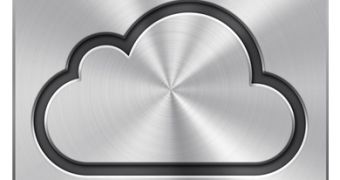Apparently, Apple does have its limits. While it seems that everything it sets its mind to, it accomplishes with huge success, phones, tablets, music stores and so on, one thing that it hasn't mastered, yet, is the cloud.
Apple's upcoming iCloud service has been hyped since people first learned about it.
It's the next logical step for computing and, while Apple's approach to the cloud may still be device-centric, rather than web-centric and device-agnostic as others, notably Google, are trying to, there's a good chance that Apple will be the first to accomplish what many have tried, get people to be accustomed to having their stuff online, in the cloud, rather than on their devices alone.
But Apple's iCloud apparently has a dirty little secret, it's not really an Apple cloud, the infrastructure, i.e. the data centers and the low-level software stacks, are provided by both Amazon, via Amazon Web Services, and Microsoft, via its Azure cloud offering.
This has been rumored from the get go, but The Register has managed to confirm it with several sources and has some more details on it.
Think about it for a second, Apple is using Microsoft's services to power its iCloud. It gets even more ironic since Azure uses Windows for its servers and virtual machines.
Which is probably why Apple has forbidden both Amazon and Microsoft to talk about the deal, which would be one of the biggest in the emerging cloud sector to date.
Already, big companies rely on AWS, Netflix for example, but there is no cloud service on the scale of iCloud that actually uses another cloud service behind it.
Of course, that's one problem with the use of the word 'cloud,' it describes too many things, from automated backup services to infrastructures with tens of thousands of servers.
But Apple's decision makes some sense. Apple does not have the know-how, yet, to build a large scale cloud software infrastructure, as demonstrated by its previous attempts, and it does not have the computing capabilities to power something on this scale, again, yet, since Apple is said to be working on some massive data center of its own.
What's more, Apple has always focused on the user experience, it never wants the users to know what happens underneath the surface.
So, Apple chose to outsource, it picked both Amazon and Microsoft, a strange choice at first glance. But this gives Apple both a strategical advantage as well as several technological ones.
The most obvious advantage is that it's not tied to one vendor, Apple can't afford to have one of its biggest undertakings to date rely on a single, outside company, a rival nonetheless.
But Apple is also making the most of the technological possibilities of having two cloud services. User data will be split between the two, enabling both faster access and better reliability.
Websites and services going down for hours when AWS went down completely know this best.
But there are some challenges, Azure and AWS are quite different beasts, not the least of which because Azure uses Windows and most AWS customers use Linux.
The software Apple would use has to run great on both platforms and on both clouds, which would mean either using a platform-agnostic technology, i.e. Java, or coding two versions of its cloud software.
There is another option, AWS also offers Windows machines, but then Apple would be stuck with a software infrastructure designed to work on Windows, something it's not going to want if it ever decides to start using its own data centers, a clear possibility.

 14 DAY TRIAL //
14 DAY TRIAL //